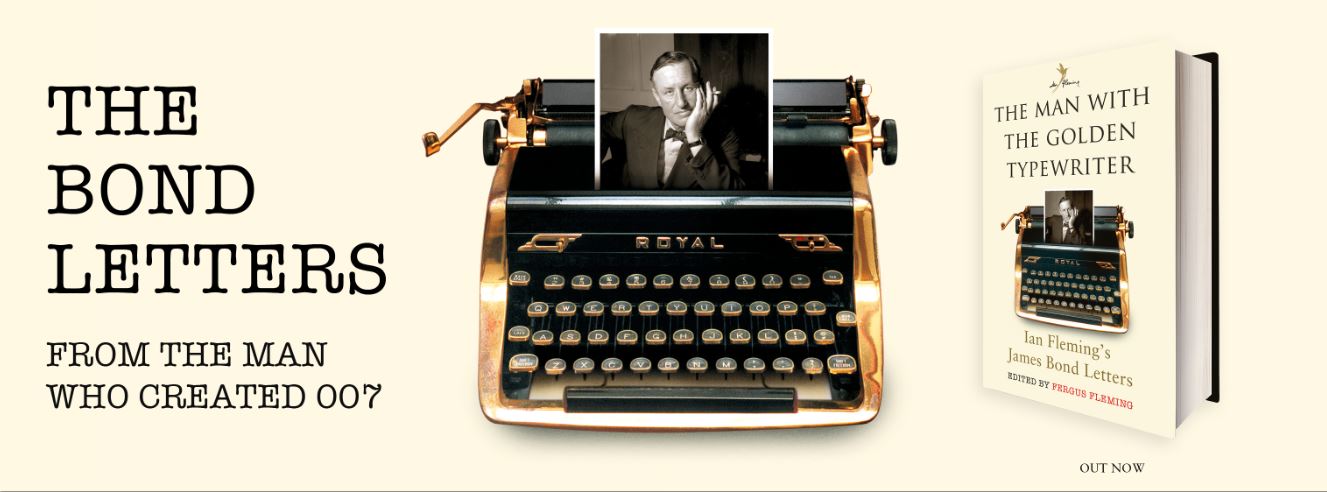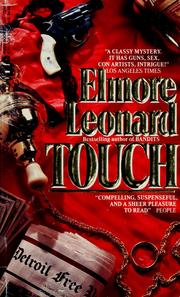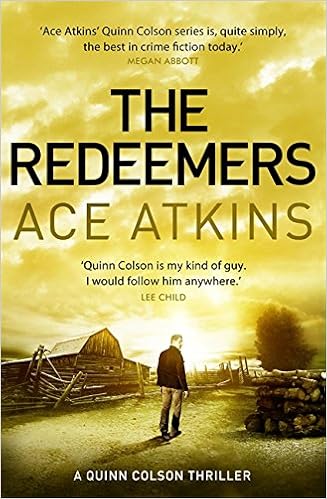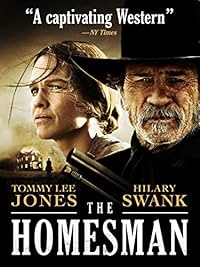
My favorite story about signings was told by Erma Bombeck years ago. She said that during one of her book signing events at a large store, only two people stopped by her signing table all day: one needed directions to the restroom and one asked her how much she wanted for the table. Funny story, but it can be a pretty accurate description of some of these signings. Nothing's ever certain, nothing's ever guaranteed. All you can do is show up, bring along a positive attitude, and hope you don't wind up sitting there twiddling your thumbs, or playing checkers with the manager in an otherwise empty store.
By the way, note that the title of this piece isn't "
The Writer's Guide . . ."--it's "
A Writer's Guide . . ." The opinions this writer will voice later are mine alone, and I welcome any and all opposing views (I might learn something).
The best of times/the worst of times
The nicest thing ever to happen to me at a booksigning occurred last spring, at a noon-to-four Saturday signing at a Books-A-Million in Meridian, Mississippi (about 100 miles east of my home). A middle-aged guy came in, saw me signing books, and introduced himself. He told me he had been here in this very store a week earlier, when he'd been driving through on I-20 on his way to Atlanta from his home in Dallas, and had spotted one of my books in the mystery section and had purchased it to have something to read during his spare time in Georgia. I thanked him for having done that, and he said, "No, thank
you. The reason I'm here again is that I'm on my way back to Texas today and I liked the book so much I stopped in to buy your other four books too." That was of course music to my ears, and I would never have known anything about it if I hadn't happened to be signing there that afternoon.
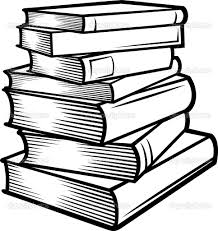
On the flip side of that is a trip I made a couple years ago to a signing at an indie store elsewhere in the state. I ended up sitting there for three hours, staring out the window at the street and watching the parking meters expire. Not one customer came through the front door that afternoon. The owner of the store was as gracious as could be, and I enjoyed meeting her, but saleswise that was my worst day so far, at a signing. My best days at regular (non-special-event) signings have been at chain bookstores at Christmastime, and my best days otherwise have been the launch/kickoff signings for new books (all my launches so far have been at Lemuria, a wonderful independent bookstore here in Jackson). All writers seem to do well at those "special" events because they're widely publicized and attract friends and family.
It goes without saying that every author has his or her own approach to booksignings. Some sit there with arms folded and glare at everyone who passes, and others leap over tables in frantic pursuit of any customer who happens to glance in their direction. Most, thank goodness, use methods that fall somewhere between these two extremes.
Not that it matters, but here's what I have always done (or tried to do) at non-indie-store booksignings:
Ten-point checklist
1. I arrive early.
2. When I get there, I introduce myself to the manager and as many of the staff as I can. These are people you want on your side, and they're usually interesting folks anyhow.
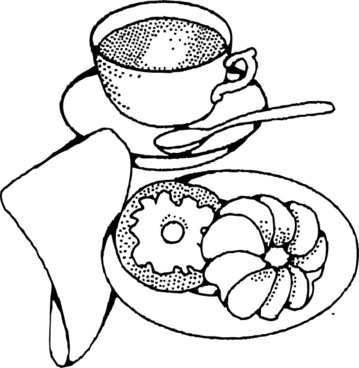
3. If my signing area hasn't already been set up, I offer suggestions of where I'd like to be located. I've found that someplace near the front entrance works best. You might think that would be obvious, but some managers like to position their visiting authors in the in-store cafe area, or in an out-of-the-way spot to give them more room. That doesn't work well, for me. If you're in the cafe you're stuck among a bunch of folks more interested in eating and drinking and talking to each other than in buying your book--or having to listen to you talk to people about buying your book--and if you're in the back of the store or any other low-traffic area there's always the chance that a potential buyer will enter and leave without ever even knowing you're there.
4. Again, if everything hasn't been set up yet, I go back to the shelves or the storeroom and help the staff carry my books to my table. In some cases I've even lugged the table and chair to the signing area myself. Authors who consider themselves above these kinds of menial tasks should get a grip on reality. (Unless maybe they're Stephen King. Nobody's going to think less of
me for doing it, because nobody knows who I am anyway.)
5. If there's an in-store cafe, I ask whoever's behind the counter for a bottle of water or a refillable cup of water to keep with me at the signing table. If he or she later happens to bring me a cookie or an apple danish to help sustain me during my ordeal, so much the better.
6. I remain standing most of the time, and use my chair only when I'm signing a book. But that's just me. And I'm careful never to have more than one chair at my table. I did that once, and a tired lady with two babies in a stroller wound up sitting there and talking to me for half an hour. She of course didn't buy a book.

7. I try to make eye contact and at least nod a greeting to shoppers when they enter the store or pass my table. If it seems natural enough, I'll walk over and hand them a brochure of my book and say, "I'm John Floyd--I'm here signing books today," and then get out of their way. I don't ask them if they like to read or if they like mystery stories or if they've heard of my books. There's a fine line here, between being proactive and being annoying, and I have an extremely low tolerance level for this kind of thing, when I'm the shopper. Besides, the person you give a brochure to will often come back later and want to hear about your books, and when that happens you have a far better chance of a sale. (NOTE: My publisher provides a simple three-fold color brochure for each book title, and to me those are more important than bookmarks, posters, or any other kind of promotional material.)
8. If a buyer wants me to personalize his or her book, I ask how the name is spelled. Even if it's John or Jane. And I have yet to guess correctly on Sara vs. Sarah.
9. I stick a bookmark (usually for one of my other titles) in every book I sign.
10. I leave late.
Random observations
If I have observed anything in the ten years I've been doing this (my first collection of shorts was published in '06), I have observed that a writer stands a better chance of selling a lot of books if he or she signs at a chain bookstore. Independent stores are fantastic and will always be dear to my heart, but unless you're hosting a launch or the store is in your hometown, I predict you'll sign more books at a Barnes & Noble, Books-A-Million, etc., simply because there'll be more people in the store. More foot-traffic equals more sales.
In the Believe-It-or-Not department, I have learned that you'll sell more books at a solo signing than at a joint signing with other authors. You'll probably have more
fun at the multiple-author signings because you always meet new contacts and renew old friendships, but I can almost guarantee that you will sell fewer books. In my case, I always,
always sell more if I'm the only writer signing in a particular venue on a particular day. I think it has something to do with human nature: a prospective buyer is much more likely to approach one person at a table than to approach a group of people, especially a group of people who might already be chatting with each other. Another thing I have found is that sometimes a reader will hesitate to buy a book from only one writer at a multi-author table for fear the other(s) might take offense. Maybe this is just a southern thing.

A third observation: If your best chance of selling a reasonable number of books is at a mega-bookstore, your least chance is (1) at a store that doesn't otherwise sell books and (2) a presentation to a group of people other than readers. Don't get me wrong: I gratefully accept invitations to do signings at coffeeshops and gift shops and to speak to groups at retirement homes and local schools--I spoke to a high-school class last week, and had a great time. But if we're talking profitability, those places obviously don't produce a lot of sales. I think the ten best-to-worst venues, in terms of the probability of selling/signing a lot of books at one time, are:
1. Chain bookstores (B&N, B.A.M, the now-defunct Borders, etc.)
2. Independent bookstores
3. Writers' conferences and book festivals (local, regional, national)
4. Book clubs
5. "Friends of the Library" groups
6. Other library events (brown-bag luncheons, author roundtables, etc.)
7. Civic club meetings (Rotary, Lions, Kiwanis, etc.)
8. Area events (fairs, flea markets, church socials)
9. Stores other than bookstores
10. Senior centers and school classrooms
Many of you will certainly disagree with this ranking, and that's fine. Some authors' comfort level at something like a library or church event might be greater than at a more commercial or unfamiliar venue, and if that's true for you, do whatever works. Again, these are my observations only. Remember too that ANY of these opportunities is a lot better than sitting at home or in your publisher's office looking at your hopefully-good-but-possibly-dismal sales figures.

Let me mention a couple more advantages/disadvantages regarding chain bookstores vs. indies. Chain-store signings can sometimes be easier on the author because the books are usually already on the shelves (handled via the publisher and distributor), and you don't have to transport them to and from the store as you might at a smaller bookstore. Conversely, though, if you sell out of all your books in a chain store, they often won't allow you to bring more books in; at independent stores you can just go out to your car and fetch another stack.
A final note. I've found that the best signing times are the last two or three weekends before Mother's Day and the eight or ten weekends before Christmas. (At least here in the South.) My publisher always tries to schedule me at large bookstores almost every Saturday in December, November, and late October. For the past seven or eight years, I've even appeared at some of the same stores twice during the pre-Christmas season (once in October and once in December). I have never yet signed on Christmas Eve because that's family time for me, but that's obviously one of the best days of the year if it suits your schedule.
Questions
For those of you who are writers, where are the places you most enjoy signing books? At which places have you been most successful? Do you consider signings fun, or a chore? (I actually enjoy them.) Do you schedule your own events, or does your publisher handle that? Do you prefer solo signings or multi-author events? Do you ever try to schedule signings in different locations for different times of the same day? (I don't.) Have your sales been better at indie stores or the big chains? Do you or your publisher produce bookmarks and/or brochures, and do you use them during signings? Do you often speak to civic/library/school groups and sell your books there? How aggressive are you at approaching readers (potential buyers) at signings? Are you sick of shoppers who go into a bookstore, buy an Elf on the Shelf or a Batman T-shirt, and never once look at a
book? Are you sick of these questions?
The truth is, unless you're a big-name writer, signings are a necessary task. Like 'em or not, they remain a great way to meet the reading public and move the books you've written. So, as my publisher would say, grin and bear it.
Is that name spelled Catherine or Katherine?
BY THE WAY … I'd like to announce that my friend and fellow writer Herschel Cozine will be posting a guest column in this space two weeks from now, on March 5. Be sure to tune in for that piece--I suspect it will be shorter than this one and I'm certain it will be better written. Herschel, welcome once again to SleuthSayers!
 What's wrong with "periodically"? Nothing--except that you seldom hear it or read it. Probably because it's just as easy to say "often" or "occasionally" or "regularly" or "now and then," which mean almost the same thing, minus the raised-eyebrow reactions. And what about "frankly"? Nothing wrong with it either, my dear, except that "honestly" seems to work better and sounds a little less pretentious. (I was once told that if you hear someone say "frankly," watch out, because whatever comes next is probably a lie.) But the one I most avoid--notice that I didn't say eschew--is "whom."
What's wrong with "periodically"? Nothing--except that you seldom hear it or read it. Probably because it's just as easy to say "often" or "occasionally" or "regularly" or "now and then," which mean almost the same thing, minus the raised-eyebrow reactions. And what about "frankly"? Nothing wrong with it either, my dear, except that "honestly" seems to work better and sounds a little less pretentious. (I was once told that if you hear someone say "frankly," watch out, because whatever comes next is probably a lie.) But the one I most avoid--notice that I didn't say eschew--is "whom." "'Whom do you trust?' and 'Whom will it be?' are technically correct but painfully stilted. Go ahead and use Who do you trust? and Who will it be? except in the most formal of writing."--Bill Walsh, The Elephants of Style
"'Whom do you trust?' and 'Whom will it be?' are technically correct but painfully stilted. Go ahead and use Who do you trust? and Who will it be? except in the most formal of writing."--Bill Walsh, The Elephants of Style And this excerpt from an old Rocky and Bullwinkle cartoon:
And this excerpt from an old Rocky and Bullwinkle cartoon:
